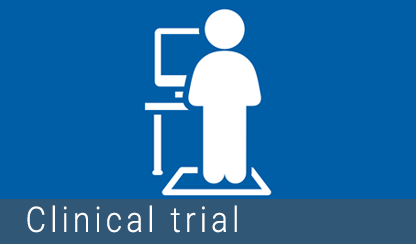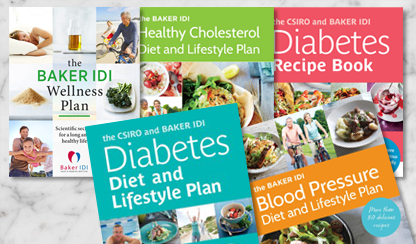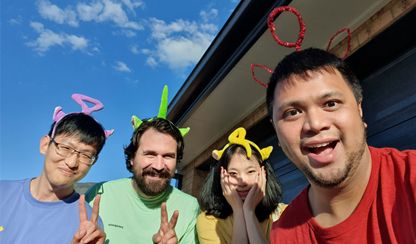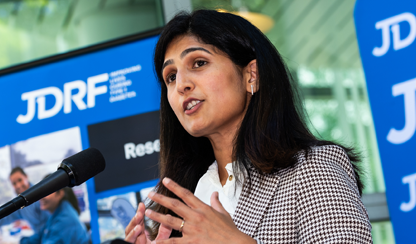18 February 2020
Institute news
When 56-year-old David Quinan found himself on the cusp of developing a chronic disease which then progressed to type 2 diabetes, he knew he needed to make some changes.
Despite being a regular golfer, as an IT worker he had a sedentary job and spent most of his working week sitting down.
So a Melbourne study called OPTIMISE is being rolled out by the Baker Institute which is looking to recruit 250 people with type 2 diabetes who work in a desk-based environment to move more and sit less attracted his attention.
Recent evidence suggests that reducing and breaking up sitting time may be an effective self-care behaviour to improve control of blood sugar in adults who have type 2 diabetes.
Head of Physical Activity research, Professor David Dunstan says the OPTIMISE study aims to test whether a 6-month intervention (involving health coaching, use of sit-stand workstations at work and a smartphone behavioural promoting tool like a Fitbit) can reduce daily sitting time and improve blood glucose control in adults with type 2 diabetes.
Three months in to the six-month intervention, and small changes to David’s day are already delivering big dividends.
David has lost 5 kilos, his blood glucose has dropped significantly from 7.3 to 6.2, he has lost 4cm off his waist and hips, and from 3000–4000 steps a day he now clocks up an average of 100,000 steps a week and spends most of his day at work standing — mainly just sitting for lunch.
What’s more, he feels great.
He sees the study as a good way to introduce lifestyle change that is sustainable, including gradual rather than dramatic weight loss. David’s long-term goal is to get off medication and to manage his health through a balanced lifestyle, and the OPTIMISE study has already helped kick start this.
Researchers are looking for more than 200 workers in Melbourne with type 2 diabetes to get involved.
Stay on top of the latest findings with our newsletter
Subscribe




